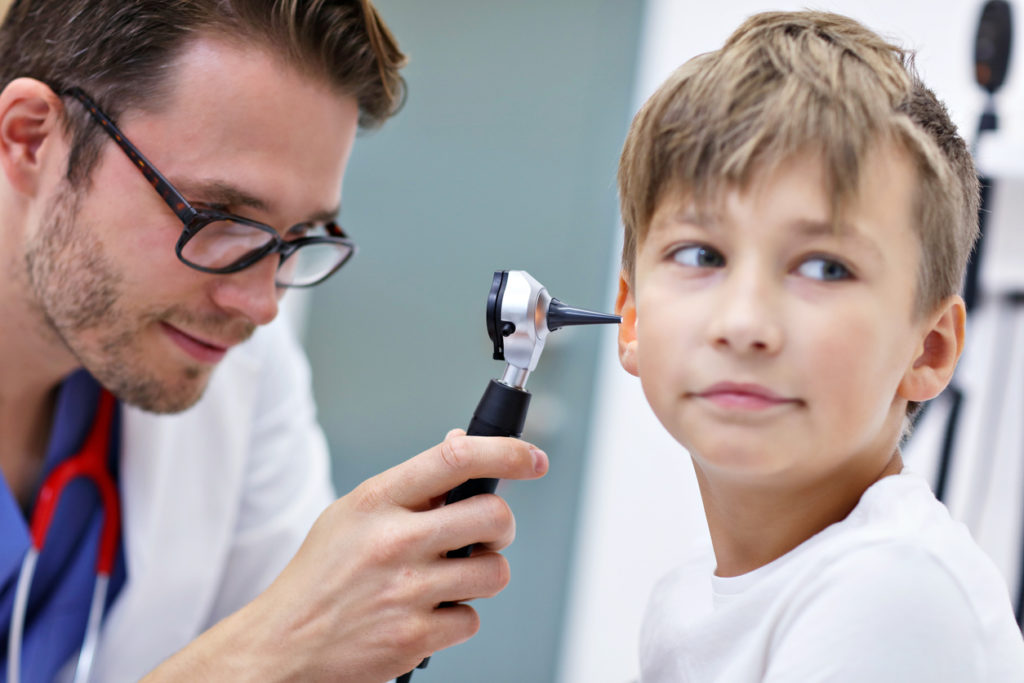The most common condition affecting the skin is eczema or dermatitis. Dr Joe Kosterich talks about eczema, including what it is, who gets it and when, where it occurs and what it looks like, theories about what causes it, how serious it is, and what to do about it.
 Eczema is a condition of inflammation of the skin. It can occur in anybody basically from day one through to age 100 and beyond. Eczema can occur anywhere on the body but maybe most frequently found on the face, hands and elbows. In children, it can be found behind the knees, and sometimes on the neck and scalp. Typically, the rash will look a little bit red – as almost all skin rashes do – and most of the time it will be itchy and it will appear in blotches. Generally speaking, nobody knows what causes eczema; it can relate to particular allergies – for example people that are allergic to strawberries and eat strawberries may break out in a dermatitis or eczema-type rash – but most of the time, there won’t be any specific cause that can be found.
Eczema is a condition of inflammation of the skin. It can occur in anybody basically from day one through to age 100 and beyond. Eczema can occur anywhere on the body but maybe most frequently found on the face, hands and elbows. In children, it can be found behind the knees, and sometimes on the neck and scalp. Typically, the rash will look a little bit red – as almost all skin rashes do – and most of the time it will be itchy and it will appear in blotches. Generally speaking, nobody knows what causes eczema; it can relate to particular allergies – for example people that are allergic to strawberries and eat strawberries may break out in a dermatitis or eczema-type rash – but most of the time, there won’t be any specific cause that can be found.
There are a lot of theories surrounding eczema and dermatitis, and it’s felt that the condition is becoming more prevalent. There are some theories around using antibiotics and the knocking out of good bacteria in the gut. Along that theme there are also some theories about the fact that we’ve sanitised the environment too much; our genuine concern for germs has taken things beyond and that because a lot of the environments are so clean, children don’t get exposure to a little bit of dirt, and their immune systems can go into hyper-drive. These are all theories and we may have some answers one day.
First and foremost, eczema is not pleasant but it’s not harmful – nobody is going to die of eczema so that is important. It is very common; something like 70–80% of babies and young children may experience some eczema at some point.
So what can we do about eczema? There are a number of steps; the simplest thing is if you are able to identify specific triggers – and as I said before, that’s probably not that likely – then you should avoid those. Simple moisturising creams are good and there are a number that you can get from the chemist. Keeping the skin moist and supple is very helpful with eczema because often if the skin is dry, it may be a little bit more susceptible. Be aware that soaps don’t necessarily cause eczema, but can make it worse so using a natural soap (something which doesn’t have a lot of perfume) or using liquid soap substitutes is very good for young skins. Also, using baby oils can be very useful and it’s sometimes a good idea to put a bit of oil on after every nappy change.
The next step up can be to use some hydrocortisone-based creams and some of these (the milder ones) are available over-the-counter; others you do need a prescription for. Now, if we don’t have to use cortisone-based creams, and some people prefer that, then that’s fine. If you can get it to respond to simpler measures that’s good but if it isn’t responding, then there is no problem with using courses of these creams. Have a chat with your doctor about it and they will be able to recommend what the best one is for your child. It’s something that can be treated and settled down. Unfortunately, treating it may not mean that it will not come back at some point and if you do have creams that have been prescribed, then you can use them again in the future if they are still within their expiry date.
As children get older, the frequency of eczema becomes less and although we do see it in adults, it is less frequently. The term “he/she will grow out of it” is not a particularly good one and people don’t like to hear that. You can’t specify an age at which it might get better and not every child will “grow out of it”. But for most children with eczema they will get lesser episodes as they do get older, and for many people there will be an age at which it doesn’t seem to occur any more. You can then look back on it and say that “they grew out of it when they were eight” but it’s more something you can say looking back rather than forwards.
To sum up, eczema is something that is very common in children: it is a nuisance, but it’s not harmful. There are some very simple things you can do to look after the skin, and we touched on use of moisturising creams, oils and care with a selection of soaps. If you need to go to the next stage, there are hydrocortisone-based creams either over-the-counter or as a prescription from your doctor.
With any rash, for the first time it’s a good idea to get it checked with your doctor. Whilst eczema is the commonest cause of rash in children, there are other causes. Once you have seen eczema a couple of times you will recognise it so you don’t have to run off to the doctor every time. Certainly for the first time, you do want to get it properly diagnosed.
Eczema is something that can be managed quite satisfactorily and for a lot of children, it will get better as they get older.
All content and media on the HealthEngine Blog is created and published online for informational purposes only. It is not intended to be a substitute for professional medical advice and should not be relied on as health or personal advice. Always seek the guidance of your doctor or other qualified health professional with any questions you may have regarding your health or a medical condition. Never disregard the advice of a medical professional, or delay in seeking it because of something you have read on this Website. If you think you may have a medical emergency, call your doctor, go to the nearest hospital emergency department, or call the emergency services immediately.







